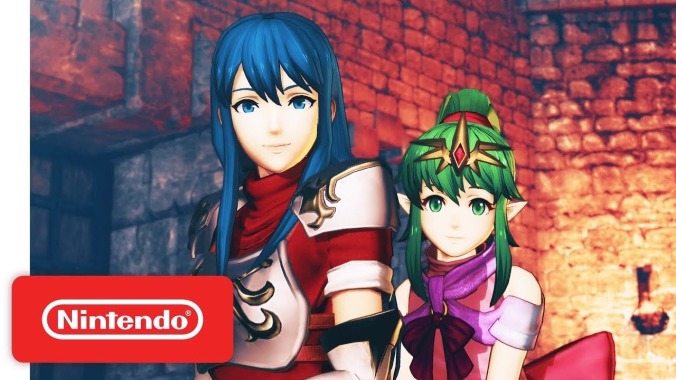This horrific RPG turns Jenga into a game of life and death

Every Friday, A.V. Club staffers kick off our weekly open thread for the discussion of gaming plans and recent gaming glories, but of course, the real action is down in the comments, where we invite you to answer our eternal question: What Are You Playing This Weekend?
Dread
I decided this Halloween was finally time for my tabletop gaming group to play Dread, a storytelling horror game I’ve been fascinated by for years. The game’s hook is pretty simple: Instead of rolling dice to resolve difficult situations, players pull and place blocks from The Tower, a rickety wooden structure placed in the middle of the table and constantly threatening to topple over. (Really, it’s just a standard Jenga set, but The Tower is more suitably ominous as a name.) As the situation gets more dire, more pulls are required and The Tower gets more wobbly; when it falls over, the character who knocked it down dies or is otherwise removed from the game. I’m excited to see how this rising tension plays out, but right now, as I design the standalone scenario my players will run through, I’m even more interested in the games’ smaller, more clever details. For example: All character creation is done through a custom-made questionnaire, and it’s been really interesting seeing how my players fill in the loose templates I built for them with my leading questions. (There’s nothing like someone writing “Hey, I kind of gave my character robot arms, is that okay?” in an email to brighten up my day.) The questionnaire also allows me to seed in all sorts of nasty ideas for the session; on the most basic level, I asked every player what song gets stuck in their head all the time. You had better believe that playlist is making it into my planning, along with a lot of other nasty stuff dredged up from the basement level of my mind. [William Hughes]
Fire Emblem Warriors
The long-running Dynasty Warriors series has picked up a lot of fairly well-deserved criticism over the years, mostly because the games are all varying degrees of mindless and they’re basically all the same: You drop into a huge battlefield with thousands of enemy soldiers, you hit the attack buttons over and over and over again, and eventually you’ll slaughter enough people to move to the next level. It’s fun and it can be intense, but in sort of a chill, zen-like way. Fire Emblem Warriors—the latest game to slap a recognizable brand on top of the established formula—doesn’t look too different on the surface beyond the fact that it’s got a bunch of anime knights instead of realistic-ish samurai (or Zelda characters or Gundams), but it adds a wrinkle to the series that I think is simply brilliant.
Traditional Fire Emblem games are strategy RPGs, with you positioning soldiers around a battlefield and then telling them where to go and who to fight. In a nod to that, Fire Emblem Warriors lets you give orders to the characters you aren’t controlling at that moment, so if you’re fighting a tough enemy and need to go defend a different area, you don’t have to drop what you’re doing and take care of it yourself. You can go into a menu, tell one of your other characters to take care of it, and then keep doing whatever you want. It almost turns this Warriors spin-off into a strategy game, even if you still have to control one character at all times and the AI fighters are far from completely self-reliant. Either way, it’s an evolutionary step forward for a series that has been needing one for a decade. Also, the Fire Emblem characters are all pretty cool and some of them are total pervos, which is a lot of fun. [Sam Barsanti]
South Park: The Fractured But Whole
With Mario Odyssey eating up all my time, I’ve barely had a chance to scratch the surface of this one. Despite not being invested in the TV series in years, I loved The Stick Of Truth, the last South Park RPG. That first outing had the novelty of being a video game that looked exactly like an episode of the show and acted like an interactive model of its town and history. As a sequel, The Fractured But Whole doesn’t benefit from that freshness, and that’s definitely made it a tougher sell. It doesn’t help that the jokes, at least in the early goings, don’t always land for me, and when the game turns its ever-chortling attention to video game tropes (like a bus-stop sign that says “DLC”), they tend to be too clever by half.
That said, I’ve found myself surprisingly interested in turn-based battling. Stick was an homage to the timing-testing combat of the Mario RPGs, but Fractured looks toward more tactical games for its inspiration. Fights take place on grids that each character can move around on their turn, and keeping careful control over the locations of both your kids and their bullies is paramount. It’s enough of an intriguing twist to make me want to keep at it, at least for a bit longer. [Matt Gerardi]